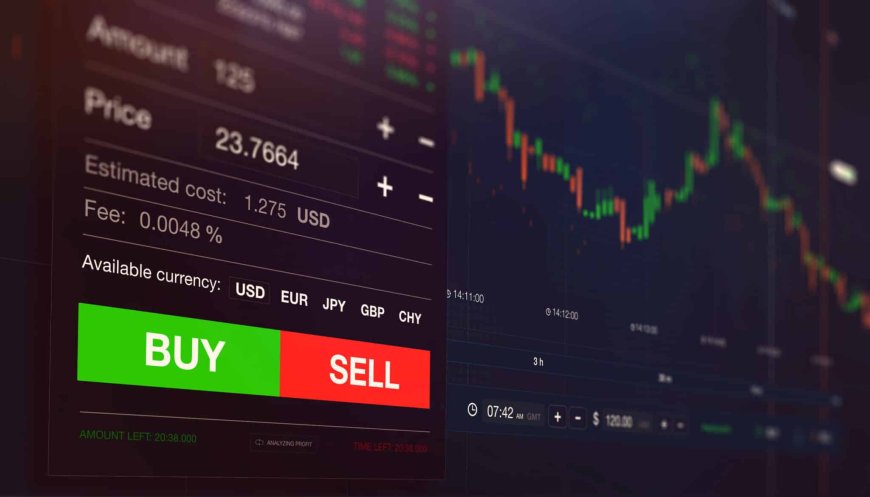Forex One: The Role of Currency Reserves
Do you want to trade forex efficiently this 2025? Then you should know more about the role of currency reverse in the market!

When it comes to forex trading online, the role of currency reserves often gets overlooked. Yet, these reserves are a fundamental part of the global financial system, shaping the stability and strength of economies worldwide. In this article, we’ll break down what currency reserves are, why they matter, and how they impact forex trading online in a way that’s easy to understand and approachable.
What Are Currency Reserves?
Currency reserves refer to the foreign currencies that a country’s central bank or monetary authority holds. These reserves often comprise leading global currencies such as the U.S. dollar (USD), euro (EUR), Japanese yen (JPY), and British pound (GBP). Gold and Special Drawing Rights (SDRs) from the International Monetary Fund (IMF) can also be part of these reserves.
Think of currency reserves as a financial safety net. They’re used to stabilize a country’s economy during turbulent times, support its currency, and settle international trade obligations. It’s like having a savings account for emergencies but on a national scale.
Why Do Countries Hold Currency Reserves?
There are several reasons why countries maintain currency reserves:
-
Stabilizing the National Currency
If a country’s currency faces excessive volatility, the central bank can dip into its reserves to buy or sell foreign currencies. This intervention helps stabilize exchange rates and maintain investor confidence. -
Facilitating International Trade
Since most global trade is conducted in major currencies like the USD or EUR, having reserves ensures that a country can pay for imports and service foreign debt without disruptions. -
Building Economic Credibility
A robust reserve position signals economic strength and stability to investors and trading partners. It’s a reassurance that the country can handle external shocks. -
Responding to Financial Crises
Reserves act as a buffer during economic crises, allowing governments to manage balance-of-payment issues or unexpected capital outflows.
How Currency Reserves Impact Forex Trading Online
Now, let’s connect the dots between currency reserves and forex trading online. As you know, forex trading involves buying and selling currency pairs to profit from their fluctuating values. Central banks’ actions with their reserves can significantly influence these fluctuations.
Central Bank Interventions
When a central bank intervenes in the forex market using its reserves, it directly impacts currency values. For example, if a central bank floods the market with its currency to stabilize its value, the supply-demand dynamics shift, affecting exchange rates.
Indicators of Economic Health
Traders often look at a country’s reserve levels as an indicator of its economic health. High reserves can signal stability, making the country’s currency more attractive. On the flip side, dwindling reserves might raise concerns about economic vulnerabilities, potentially causing currency depreciation.
Confidence Booster
Strong currency reserves build investor confidence, encouraging foreign investment and boosting demand for the country’s currency. This can lead to upward pressure on the currency’s value—something forex traders closely watch.
Real-Life Examples
To make this clearer, let’s look at a couple of real-world scenarios:
-
China’s Massive Reserves
China holds the world’s largest foreign currency reserves, primarily in USD. This massive reserve stockpile allows China to stabilize its currency, the yuan, and manage its exchange rates despite external pressures. Forex traders often keep an eye on China’s reserve movements to predict potential currency interventions. -
Argentina’s Struggles
On the other hand, countries like Argentina have faced crises due to depleted reserves. Low reserves limit a country’s ability to defend its currency, often leading to sharp devaluations and high inflation—a nightmare for forex traders dealing with currency pairs involving the Argentine peso.
Tips for Forex Traders
If you’re diving into forex trading online, understanding the role of currency reserves can give you an edge. Here are a few tips:
-
Monitor Central Bank Activities: Keep tabs on central banks’ statements and actions. They often give clues about reserve management and potential interventions.
-
Stay Updated on Economic Data: Reserve levels are part of the broader economic picture. Pair this knowledge with other indicators like GDP, inflation, and trade balances for a well-rounded analysis.
-
Follow Major Currencies: Focus on currency pairs involving reserve currencies like USD, EUR, or JPY, as they’re more stable and heavily influenced by reserve trends.
-
Practice Risk Management: Reserve-related news can cause market volatility. Utilize tools like stop-loss orders to effectively manage risk.
Take Away
Currency reserves might not be the flashiest topic in the forex world, but they play a pivotal role in shaping the global financial landscape. For anyone involved in forex trading online, understanding how reserves work and their impact on currency values is crucial for making informed decisions.
So, the next time you analyze a currency pair, consider looking into the reserve dynamics of the countries involved. It might just give you the insight you need to navigate the market more effectively. Happy trading!
What's Your Reaction?

























